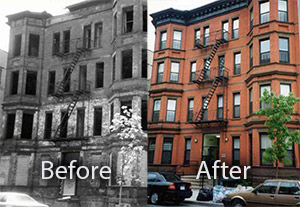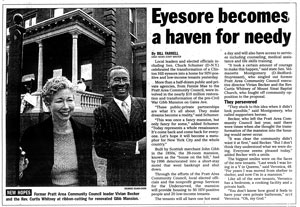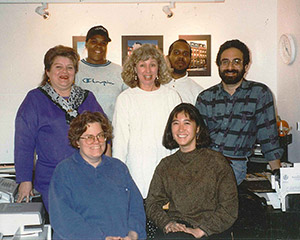
People Rise Up
Pratt Area Community Council was formed by three civic-minded individuals — Reverend Richard Johnson, Amos Taylor and Furman Walls. Other organizations and individuals soon joined. Working together under the PACC banner, the people of Fort Greene, Clinton Hill, the Wallabout Community, and later Bedford Stuyvesant, fought for decent, affordable housing, tenants' rights, and economic renewal. Their efforts got attention and results from politicians, bureaucrats, recalcitrant landlords and private agencies.







